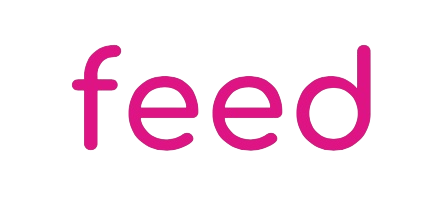
Feed Advocates
#TeamFeed is a community of like minded people who put women and families at the heart of infant feeding. We have a special group to help us do that - the Feed Advocates. These fantastic volunteers help us ensure that the voices of Mums and families are centred in everything we do. We work together to ensure our community is represented at the national level through our advocacy work.
Each of our advocates has their own unique infant feeding experiences, bringing individual perspectives that ensure we are always thinking outside the box.
Our Advocate Programme
-
To develop a group of Feed Advocates who can bring their unique perspectives and experiences to our research, policy, and advocacy work.
Feed Advocate Group is a Patient and Public Involvement (PPI) group to help Feed ensure the work being undertaken represents things that are important to Mums and families. Feed relies on input from its advocate group to help direct research, outputs, policies, and lobbying work.
-
Feed Advocates feel passionately about infant feeding and are willing to share their experiences and opinions.
-
As a member of the Feed Advocate group, you will work alongside the Feed members, board, and other advocates. You will receive a formal induction and welcome to the team. Things our advocates may be asked to contribute to include:
Taking part in in-person or online advocate meetings or workshops.
Helping with communication and reach.
Discussions around your experiences of infant feeding.
Review and input into Feed research proposals to determine if we are asking the right questions.
Review Feed policies & guidelines to ensure they are fit for purpose and meet the needs of those who they will effect.
To review and collaborate on messages shared on social media, our website and in the press to ensure the messages are clear and appropriate.
All activities are voluntary and we will never ask you to do anything, or share anything you are uncomfortable with.
-
Feed is entirely volunteer run so we know how valuable your time is.
We recognise there will be times when financial reimbursement or expenses will be required to support your participation in the Advocates programme. Where relevant, reimbursement will be provided; the amount will vary depending on the type of activity you are asked to take part in.
Feed Advocates can opt to create their own Feed Portfolio. This is a way of collating evidence of the work you have contributed to, giving you an opportunity to develop reflective practice skills and build a portfolio of your work.
-
You do not need any formal qualifications to apply. Just a desire to make things better.
What we do ask is that you have experience of infant feeding.
Our advocates are mainly parents, but we do also offer spaces to professionals who bring other knowledge and expertise related to infant feeding.
The experience you have does not have to be recent, for example your children maybe grown up, but you may have a particular insight into your local community, or on a particular infant feeding topic you feel is under represented.
It would be beneficial to have access to emails and a way to join group meetings online.
-
Complete the application form at the bottom of the page to note your interest in becoming a Feed Advocate.
Become an Advocate
If you are interested in becoming a Feed Advocate, please complete the form below and tell us why you would like to volunteer.


